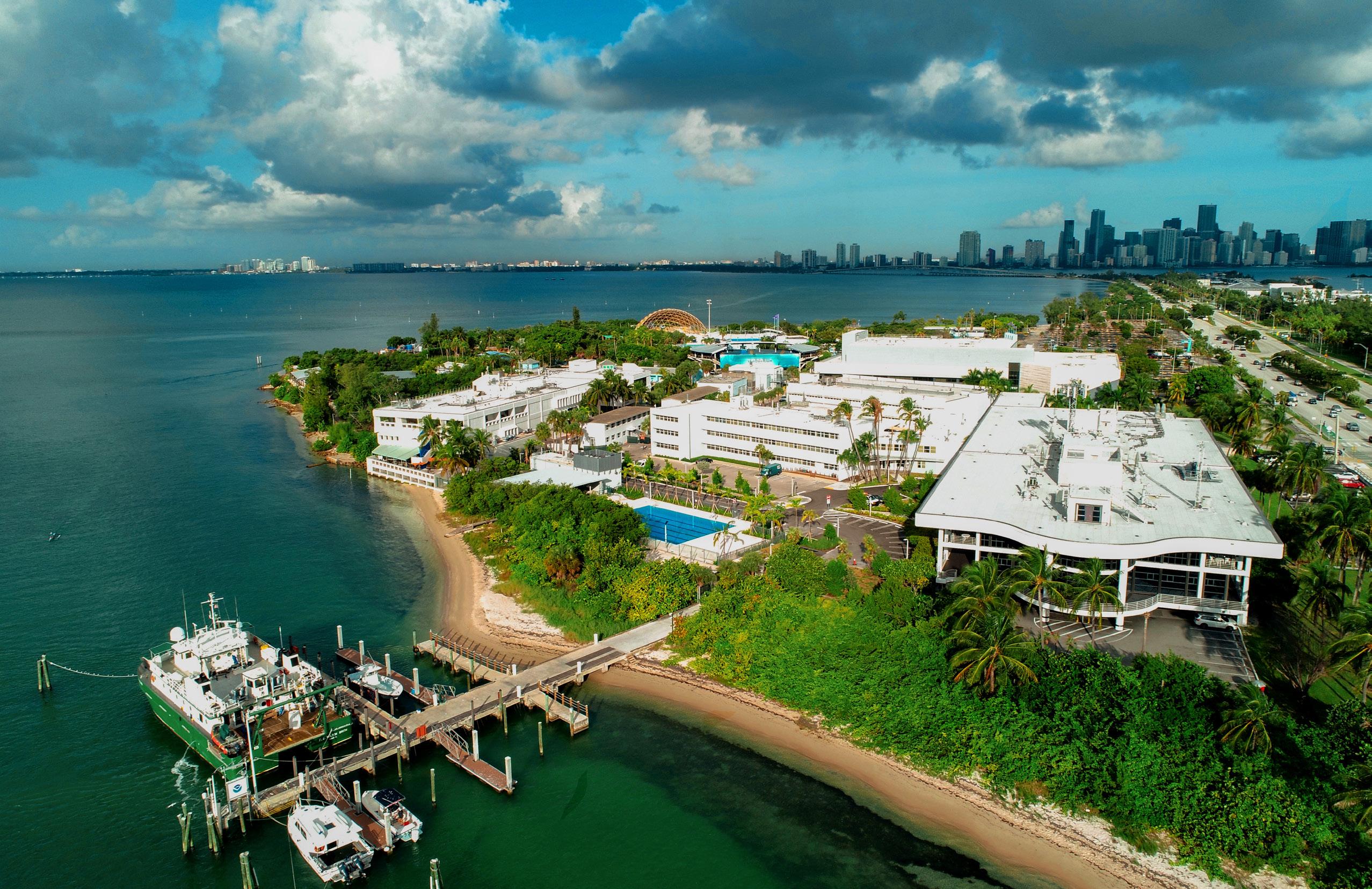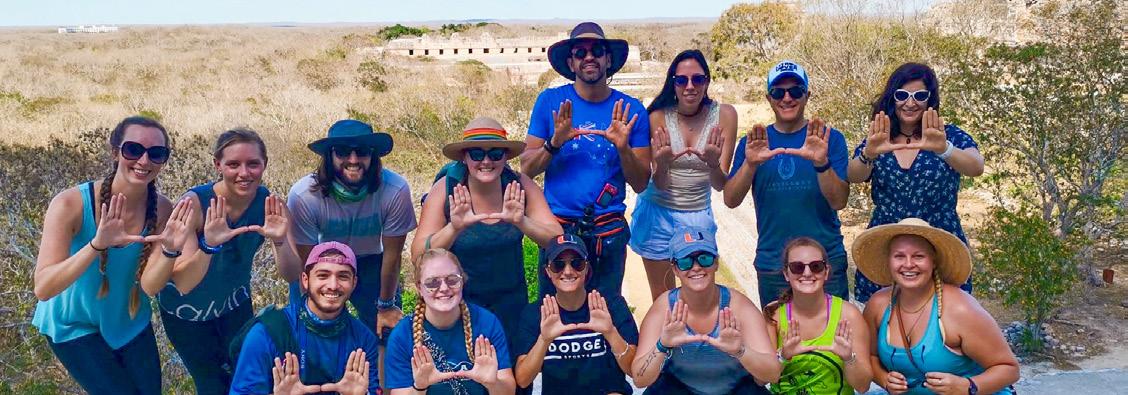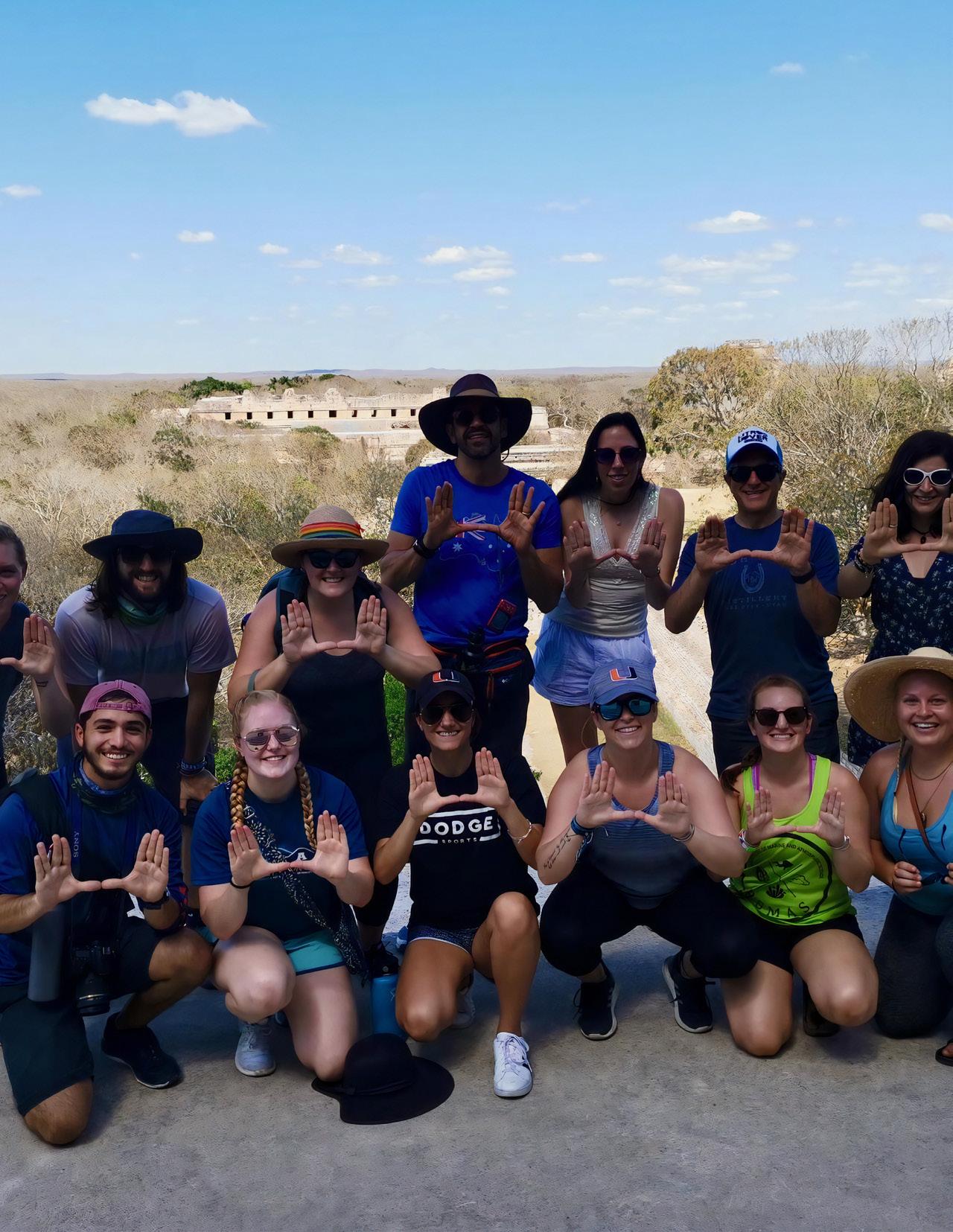Atmospheric Sciences
Broadcast Meteorology
Broadcast meteorology is a rapidly growing and evolving field and one of the largest sources of private sector meteorological employment.
The Broadcast Meteorology MPS track prepares students for on-camera and behind-the-scenes careers in broadcast meteorology and provides the training necessary to enter the wider field of science journalism. The curriculum integrates coursework in broadcast journalism from the University of Miami’s School of Communications with advanced courses in meteorology at the Rosenstiel School. This coursework meets the requirements of the American Meteorology Society Certification for Broadcast Meteorology. Students train in our state-of-the-art digital studio and award-winning news broadcast, “NewsVision,” which airs daily on local cable channels. With these unique resources, students develop their skills in communication, computer graphics, on-camera delivery, and other areas vital to a successful career in broadcasting.
Atmospheric Sciences
Climate & Society
Climate change, rising sea levels, and extreme weather events pose crucial challenges for science and society.


The Climate and Society MPS track emphasizes the relationship among weather, climate, and societal impacts and responses, including risk management, legal frameworks, the development of more resilient urban systems, and the built environment. The track draws on the University of Miami’s depth and breadth of interdisciplinary research, offering opportunities to partner with the Climate Resilience Academy, the Miller School of Medicine, the Department of Geography, the College of Engineering, and the Schools of Law and Architecture, among others. Graduates find employment in government, insurance and finance, energy, and other weather-impacted industries.
Prerequisites: Bachelor’s degree in any field; one year of calculus and a minimum of 12 credits in natural science strongly recommended
Course Topics:
- Writing and reporting across platforms
- News technologies
- Television news reporting
- Interactive storytelling
- Weather forecasting
- Broadcast meteorology
- Climate and society
Job Titles:
- Meteorologist - The Weather Channel

- Broadcast Meteorologist
- Meteorologist & Reporter
- Weekend Meteorologist
Prerequisites: Bachelor’s degree in any field; previous coursework in science or policy strongly recommended
Course Topics:
- Climate change
- Geographic Information Systems (GIS)
- Climate change and public health
- Environmental planning
- Law and policy
Job Titles:
- Physical scientist
- Resilience Coordinator
- Environmental Consultant
- Climate Risk Analyst

6 7
Atmospheric Sciences
Weather Forecasting
Weather Forecasting provides crucial information to the public as well as supporting end-users across a wide variety of weather-dependent activities and industries.


The Weather Forecasting MPS track provides graduate-level training and experience in applied weather forecasting. The curriculum includes the application of analytical information to support specialized end-users, including agriculture, utilities, insurance, transportation, construction, and other weather-sensitive industries. Students will also develop skills in different areas of service offered by the National Weather Service, including severe weather, marine and aviation forecasts, hydrology, and tropical cyclone forecasting. This track fosters skills in writing and public communication in the context of professional weather forecasting.
Environmental Science & Policy
Aquaculture
Aquaculture provides over 50% of the seafood for human consumption. As the fastest growing sector of food production, it has reshaped the fishery industry and fisheries management strategies worldwide.

The Rosenstiel School’s Aquaculture Program is a recognized leader in aquaculture science and fish hatchery technology. Students in the Aquaculture MPS track learn innovative approaches to address the important and contentious issues that shape the future of sustainable and economically viable aquaculture practices, technologies, and policies. Our Aquaculture program places an emphasis on close collaboration with research institutions, industry leaders, environmental organizations, government agencies, and regulators. Through these partnerships, our Aquaculture program spearheads advanced technology for hatchery and sustainable offshore aquaculture development both domestically and internationally.
Prerequisites: Undergraduate degree in meteorology that meets, or is consistent with, the American Meteorological Society standards for a BS in meteorology, or an undergraduate degree in a closely related field (e.g., math, physics, geoscience) with similar courses in math, physics, and chemistry
Course Topics:
- Analysis and preparation of weather forecasts
- Effective use of numerical models
- Satellite
- Doppler radar
- Upper air data
Job Titles:
- Meteorologist
- Atmospheric Scientist
- Marine Forecaster
- Scientific Programmer
Prerequisites: Bachelor’s degree in any field
Course Topics:
- Fish physiology
- Fisheries economics
- Aquaculture business

- Seafood marketing
- Larval rearing
- Live feed production
- Hatchery and grow-out technology
Job Titles:
- Data Manager–NOAA
- Fish Production/Lab Manager
- Fisheries Technician
8 9
Environmental Science & Policy
Coastal Zone Management

Over half of the world’s population resides in growing coastal areas. These areas are major economic engines, supporting port and shipping tourism, fisheries, aquaculture, and oil and gas mining activities. The coastal zone – comprising nearshore waters and lands — represents some of the most fragile habitats on the planet. Balancing economic development and coastal protections in the face of anthropogenic stressors is a major challenge that resource managers face in the 21st century.
The Coastal Zone Management MPS track offers a multidisciplinary approach to addressing problems in coastal areas. Students can explore a broad variety of topics, ranging from coastal fisheries management and tourism development to port management and environmental impact assessment. Students will also be introduced to associated legal and governance frameworks.
Environmental Science & Policy
Exploration Science
Exploration Science is the applied study and practice of field research using diverse methods, technologies, and approaches to drive question-based scientific endeavors. It combines scientific research theory and field skills with an outreach and educational component for experimental and virtual expeditions bringing discovery to a wider audience.
The Exploration Science MPS track immerses students in citizen science project design, exploration technology applications, and field-based skills training, while offering essential background information that acknowledges the cultural and ethical implications of exploration. Students will be able to tailor their degree to best fit their interests and will be prepared to lead professional exploration initiatives and expeditions in a variety of environments. This track is being offered at the Rosenstiel School in partnership with the University of Miami’s Abess Center for Ecosystem Science and Policy.
Prerequisites: Bachelor’s degree in any field
Course Topics:
- Marine protected areas
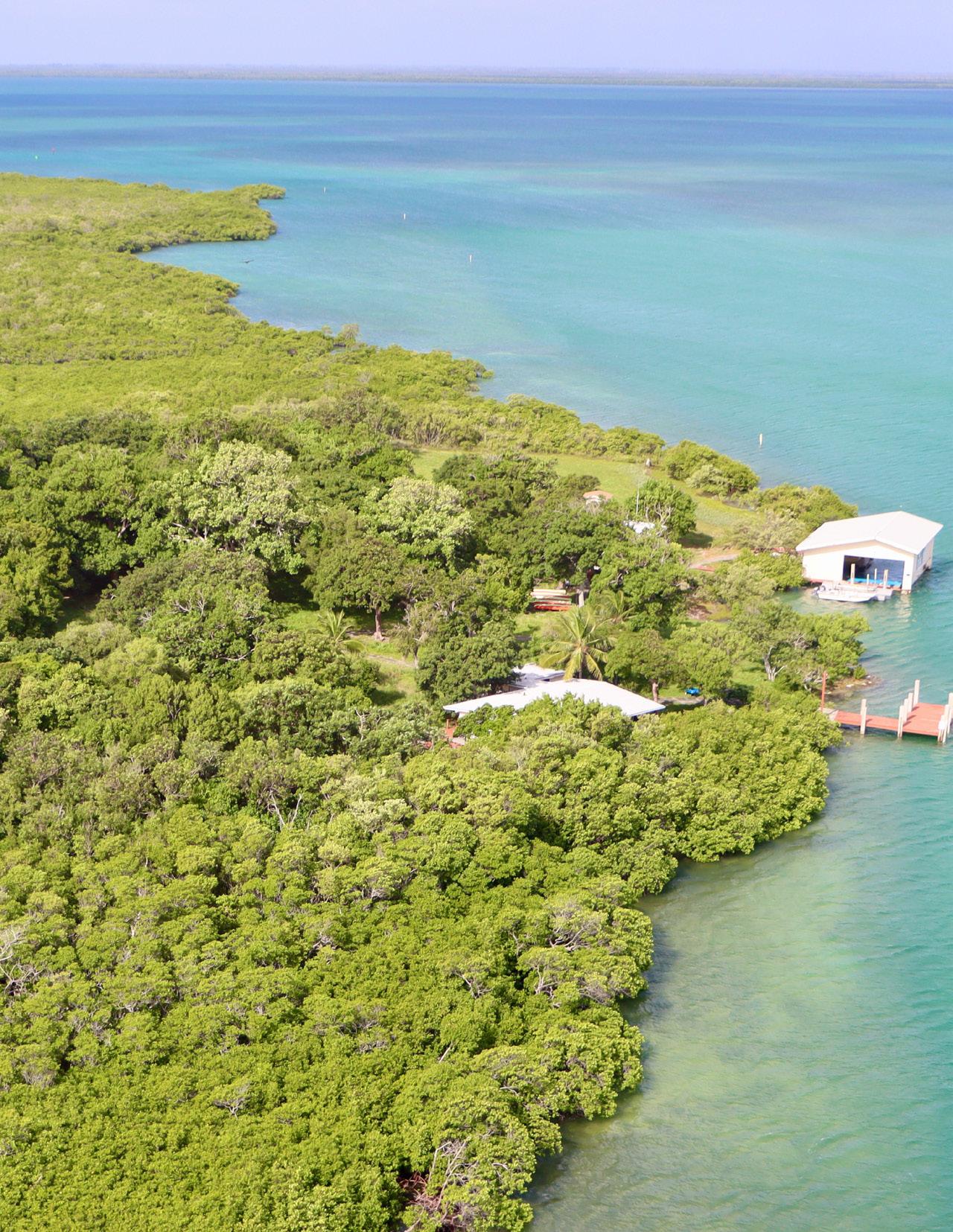
- Coastal law and policy
- Management and conservation of marine ecosystems
- Environmental planning and environmental impact statements
Job Titles:
- Environmental Policy Research Assistant
- Project Manager–US Army Corps of Engineers
- Legislative Assistant–Florida Senate
Prerequisites: Bachelor’s degree in any field
Course Topics:
- Scientific research diving
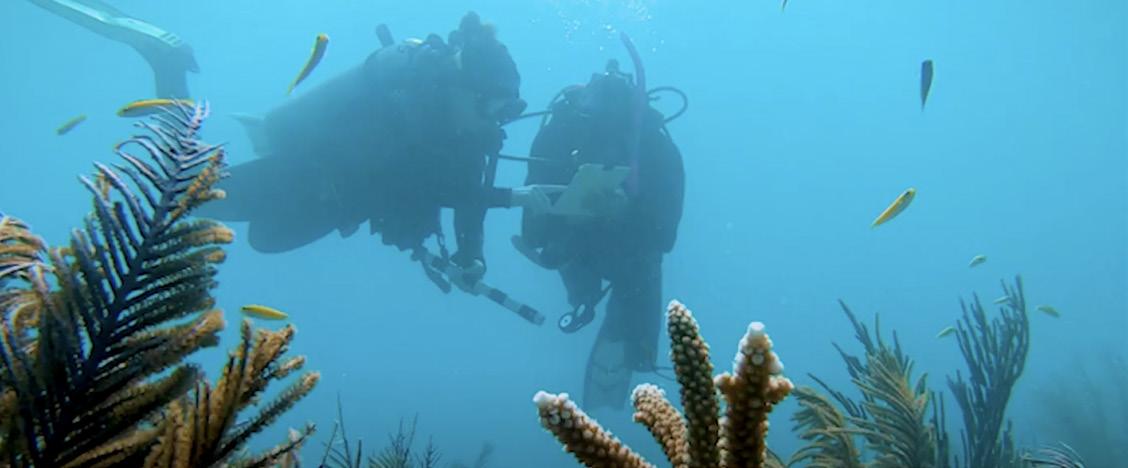
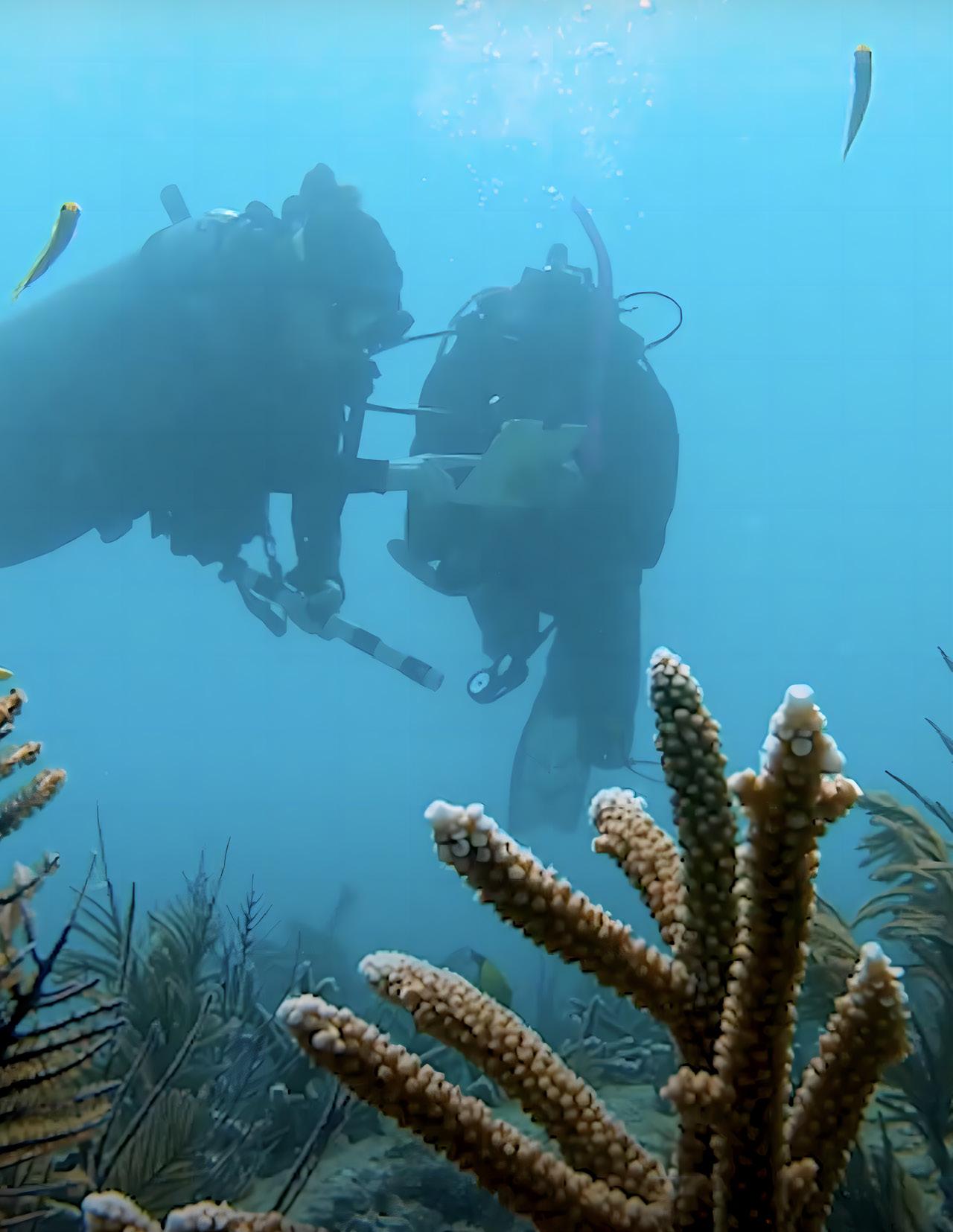
- Motorboat operations
- Citizen science
- Exploration technology and media
- Geographic Information Systems (GIS)
- Field techniques
Job Titles:
- Chief of Dive Staff
- Marketing and Development Coordinator–PADI
- Environmental Scientist
10 11
Environmental Science & Policy
Fisheries Management & Conservation
Fisheries management and conservation supports the stewardship of marine resources by providing quantitative knowledge and modeling of the natural and anthropogenic processes that regulate fishery ecosystems. These models also provide predictions on the future behavior of those ecosystems. The Fisheries Management and Conservation MPS track allows students to develop the professional skills required to be a fishery scientist with curriculum options including fishery management, fishery surveys, and quantitative fisheries. Graduates with these skills find employment in government agencies, such as the National Marine Fisheries Service, state agencies, fishery councils, regional NOAA laboratories, and Non-Governmental Organizations (NGOs).
Environmental Science & Policy
JD/MPS
The University of Miami School of Law and the Rosenstiel School offer a joint degree program in law and environmental science and policy. Upon completion of these programs, students earn the Juris Doctor degree from the School of Law and the Master of Professional Science degree from the Rosenstiel School. Based on their career interests, students can choose to study in one of the following tracks: Aquaculture, Coastal Zone Management, Marine Conservation, or Climate and Society.


Students applying for the joint degree program must apply to both the School of Law and the Rosenstiel School’s MPS program. Joint degree students begin their graduate coursework at the Rosenstiel School during their second year in residence at the School of Law.
Prerequisites: Bachelor’s degree in any field
Course Topics:
- Processes influencing fisheries management
- Development of fisheries policy alternatives
- Design and implementation of fishery surveys and monitoring programs

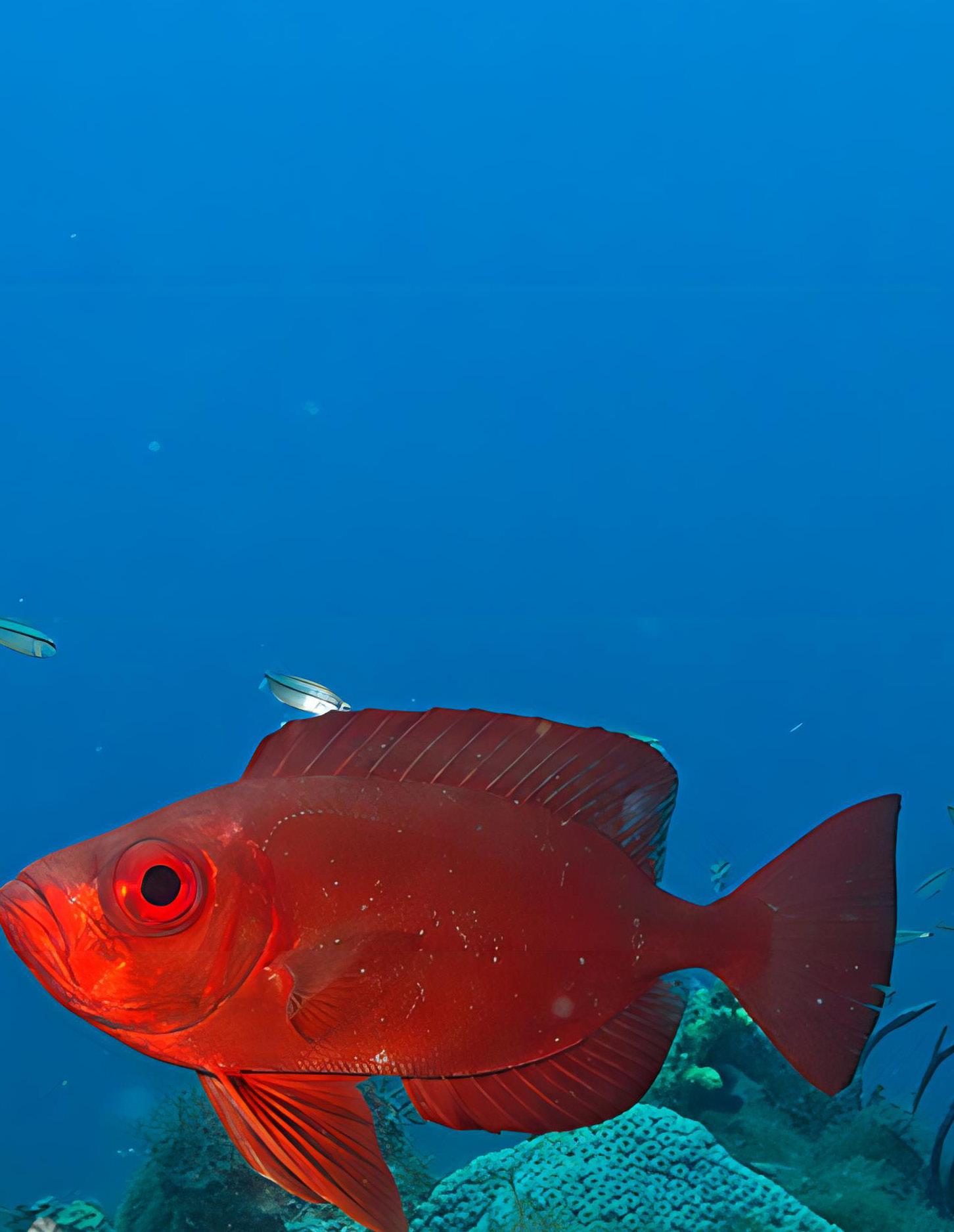
- Statistical and mathematical modeling tools for fishery stock assessments
Job Titles:
- Associate Software Developer
- Fisheries Management Planner
- Field Natural Resources Specialist
Prerequisites: Bachelor’s degree in any field; admission to the University of Miami School of Law
Course Topics: Dependent on chosen track
Job Titles:
- Trial Attorney–US Department of Justice
- Assistant Counsel–NYC Department of Environmental Protection
- Assistant County Attorney - Land Use and Environmental Law
12 13
Environmental Science & Policy
Marine Conservation
Marine Conservation advances environmental preservation efforts within the marine realm. It encompasses scientific research methods and fieldwork, public outreach and education, GIS and remote sensing, environmental impacts, coastal law, environmental management statistics, as well as scientific literacy and communication.
The Marine Conservation MPS track provides students with advanced training in these theoretical and practical aspects of marine science and conservation. It offers unique flexibility to design a program of study that will prepare students for a wide variety of professional science careers, in fields such as marine biology, ecosystem science, management, media, and education.
Marine Biology & Ecology
Marine Mammal Science
Marine mammal conservation has advanced significantly in recent years due to greater understanding of marine mammal biology, behavior, and psychology, and improved diagnostic methods.

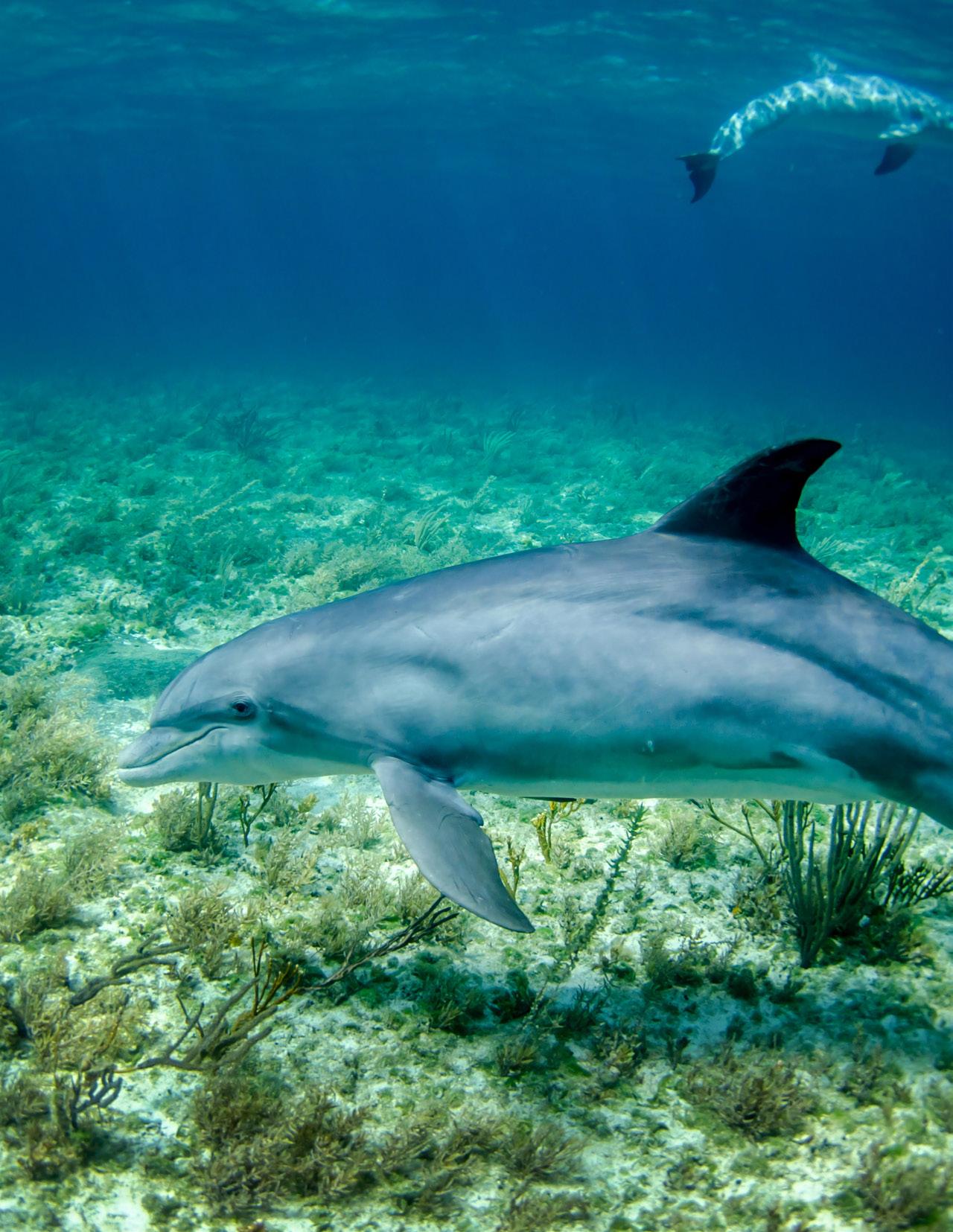
The Marine Mammal Science MPS track is one of the select programs in the nation that prepares students for employment in marine mammal management, population assessments, acoustics, and care. Students interact with medical, research, and training experts in our community, as well as conduct an internship at one of our many marine mammal rehabilitation, managed care, or research facilities. As part of the practical training of the curriculum, students have the opportunity to participate in mark-recapture surveys, public education, wild health assessments, behavior analysis and modification studies, clinical care and diagnostics, necropsies, and regional and national conferences.
Prerequisites: Bachelor’s degree in any field
Course Topics:
- Marine conservation biology
- Field techniques
- GIS
- Statistics
- Environmental impact statements
- Coastal law
- Science communication and outreach
Job Titles:
- Director of Education
- Coastal Crab Biologist
- Communications and Engagement Manager
- Aquarist
- Environmental Consultant
- Coral Reef Conservation Program Coordinator

- Coastal Resource Management Specialist
Prerequisites: Bachelor’s degree in any field; one year of general biology and labs, one year of general chemistry, at least one semester of calculus, and nine credits in natural science. Research in these fields may, in some cases, substitute for coursework
Course Topics:
- Marine mammal medicine and pathology
- Medical diagnostics and laboratory analysis
- Population assessment and management
- State and federal regulations
- Applied ocean acoustics
- Research education
- Applied behavior analysis
Job Titles:
- Director of Marine Science Education
- Stranding Technician
- Marine Mammal Trainer

- Veterinary Technician
- Animal Behaviour and Welfare Consultant
- Marine Mammal Biologist
14 15
Marine Biology & Ecology
Tropical Marine Ecosystem Management
Nearshore benthic ecosystems common to tropical and subtropical regions worldwide such as coral reefs, seagrasses, and mangroves are facing unprecedented threats due to climate change and human activity.
The Tropical Marine Ecosystem Management MPS track prepares students to help confront these threats with advanced training in the theoretical and practical aspects of tropical marine ecology. Students in this track receive training in field methods and techniques, Geographical Information Systems (GIS) and remote sensing of shallow water marine environments, taxonomy and identification of common marine organisms, scientific diving, and small boat handling. This degree is excellent preparation for technical positions in marine ecosystem science and management at state and federal agencies, research institutions, nonprofit organizations, and the private sector.
Marine Geosciences Environmental Geology
Environmental geoscientists collect and analyze air, water and soil samples to prevent, control, or fix environmental problems. Ever increasing urban development and industrial expansion cause stress and potential hazards for the environment and human health. In addition, global climate change, in particular sea level rise, is affecting millions of people in the US and around the world. Well trained professionals are needed who can identify, control, or eliminate sources of pollutants or hazards affecting the environment or public health.
The Environmental Geology MPS track offers students a specialized degree that combines knowledge in theoretical areas of geology with technical expertise in geochemistry, geophysics, and hydrogeology to address geologic hazards.
Prerequisites: Bachelor’s degree in any field; one year of general biology and labs, one year of general chemistry, at least one semester of calculus, and nine credits in natural science. Research in these fields may, in some cases, substitute for coursework
Course Topics:
- Tropical marine ecology
- Statistics
- Environmental law
- Field techniques
- Geographical Information System (GIS)
- Environmental planning
Job Titles:
- Research Operations SpecialistNOAA
- Marine Scientist

- Biological Science TechnicianNational Park Service
- Reef Injury Prevention and Response Technician
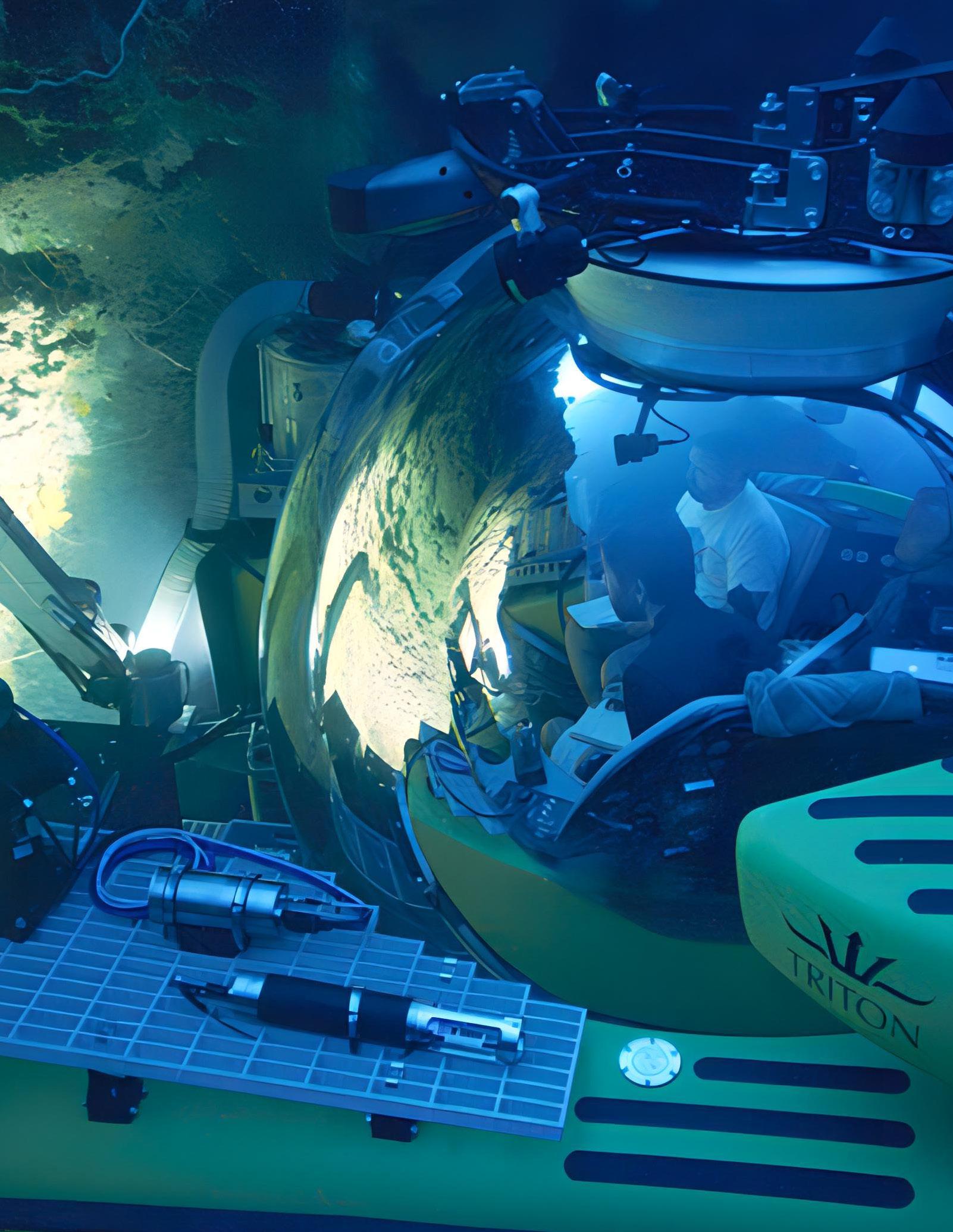
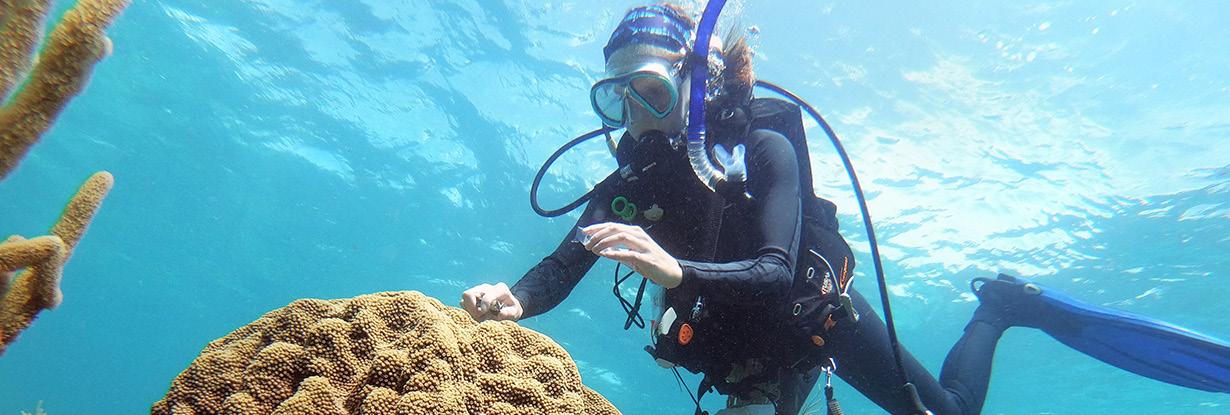
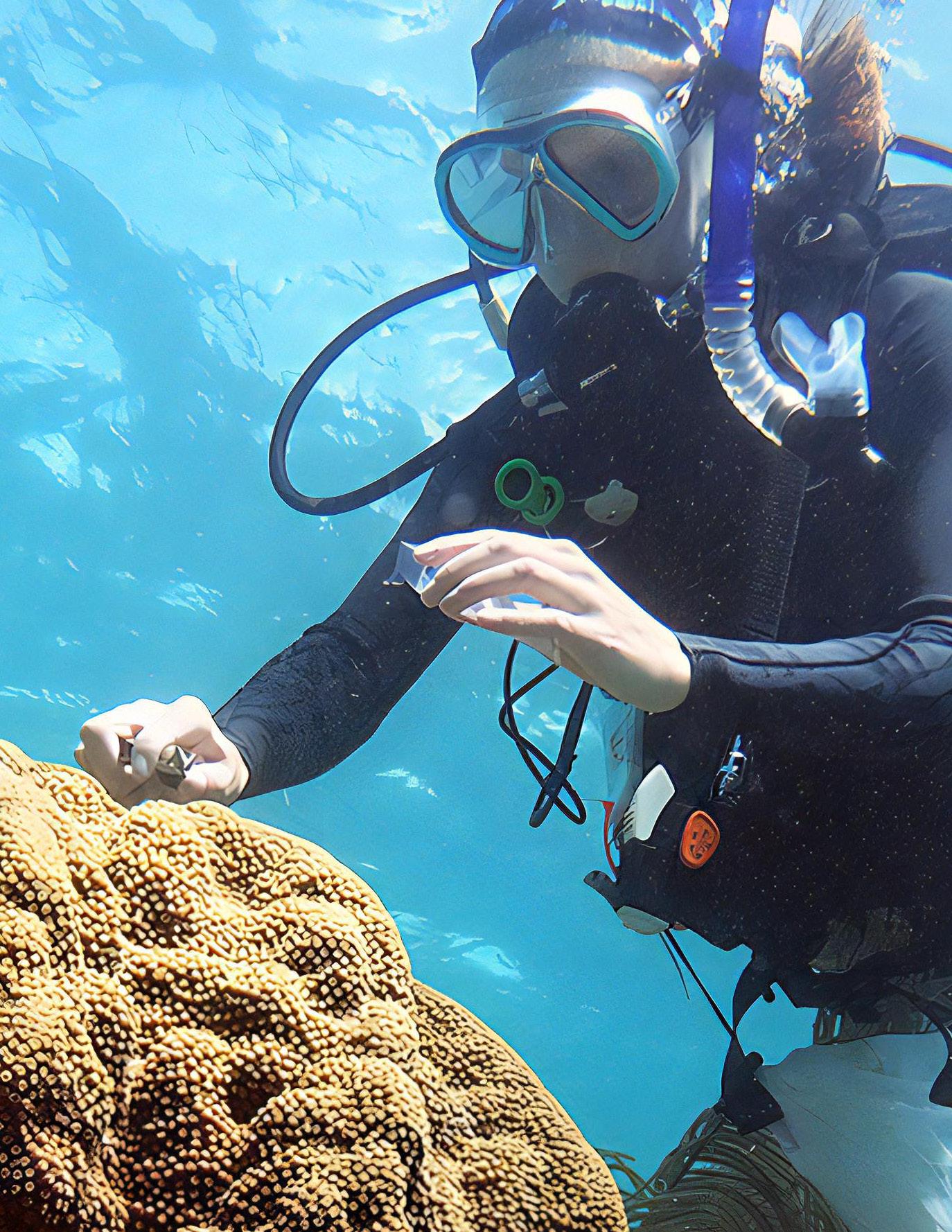
Prerequisites: Bachelor’s degree, preferably in geology, geochemistry, or geography
Course Topics:
- Earth surface processes
- Environmental site assessment
- Geographic Information System (GIS)
- Geophysics
- Geological and hydrological hazards
- Seismic interpretations
Job Titles:
- Environmental Geologist/Scientist
- Environmental Project Manager
- Natural Resource Specialist
- Project Engineer Geologist
- Hydrogeologist
16 17
Ocean Sciences
Applied Remote Sensing
Remote sensing technologies enable researchers to acquire high-resolution satellite imagery and obtain near-real-time measurements. They have become an indispensable research and mapping tool for numerous applications including disaster response and environmental monitoring.

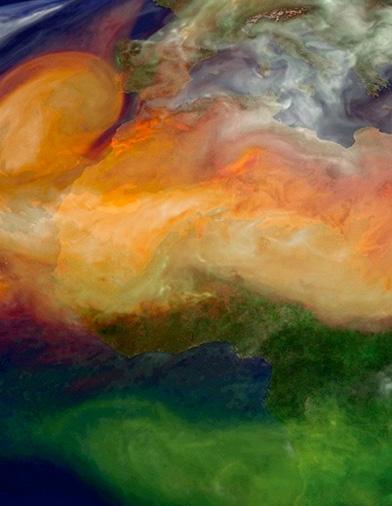
The Applied Remote Sensing MPS track provides students with theoretical knowledge and practical experience in remote sensing through the Rosenstiel School’s Center for Southeastern Tropical Advanced Remote Sensing (CSTARS). CSTARS is a leading remote sensing institution with direct access to data from various satellites and excellent connections to data users and partner institutions worldwide. This track is also appropriate for those already in the workforce and looking to expand their skills.
Ocean Sciences
Natural Hazards & Catastrophes
Society is experiencing more frequent natural catastrophes, including hurricanes, tornadoes, floods, storm surge, volcanic eruptions, landslides, hail, wildfires, and earthquakes. As many of these disasters are exacerbated by a rapidly changing climate, communities face substantial challenges to achieving resilience within the engineering, architecture, public health, business, and governance sectors.

To address these challenges, the Natural Hazards and Catastrophes MPS track offers comprehensive training to students in assessing risks and exposures associated with natural hazards. The curriculum provides students with the skills and knowledge necessary to understand atmospheric, oceanic, geological, and hydrological earth system natural hazards. It also familiarizes students with data analytics tools required to assess associated risks, such as statistics, data management, programming, Geographic Information Systems (GIS), and remote sensing. Graduates of this track are employed in the private and civil sectors, including the insurance and reinsurance industry, architecture, emergency management, engineering, as well as public health and science.
Prerequisites: Bachelor of Science degree in mathematics, physics, geosciences, or engineering or an equivalent degree
Course Topics:
- Statistics
- Geographic Information Systems (GIS)
- Radar remote sensing
- Physics of remote sensing
- Physical oceanography
- Natural hazards
- Ocean systems engineering
Job Titles:
- Data Scientist
- NASA DEVELOP Team Member
- Research Associate for Energy and
- Environmental Policy
Prerequisites: Bachelor’s degree in any field; at least one semester of statistics or calculus, or six credits in geoscience
Course Topics:
- Statistics
- Environmental law
- Decision analysis
- Hydrological hazards
- Geographic Information System (GIS)
- Modeling of rare events
Job Titles:
- Catastrophe Management Analyst
- Environmental and Historical Specialist - FEMA

- Geospatial Analyst
- Meteorologist–NOAA
- Risk Consultant
18 19

